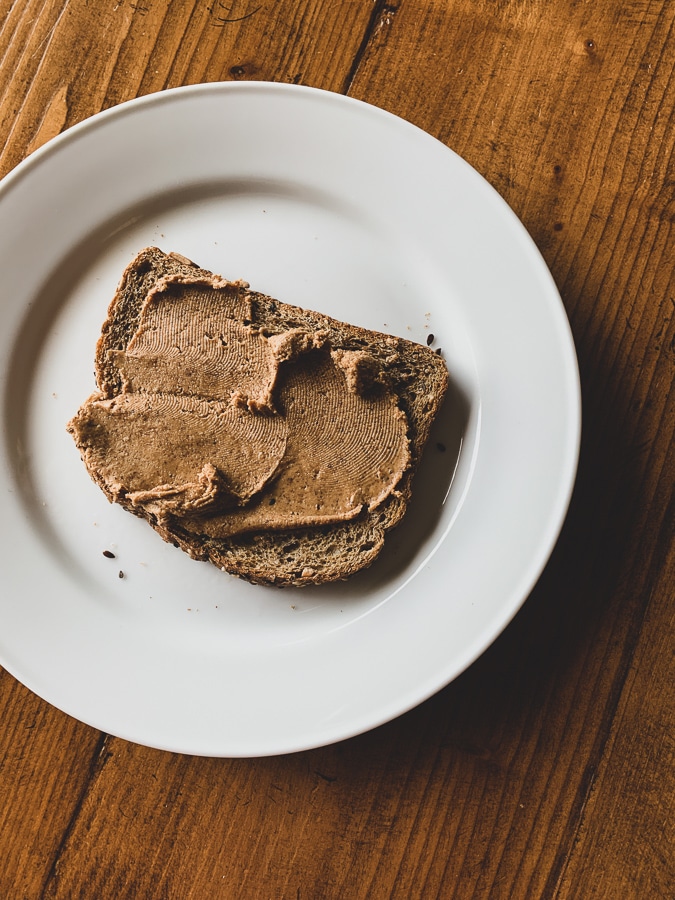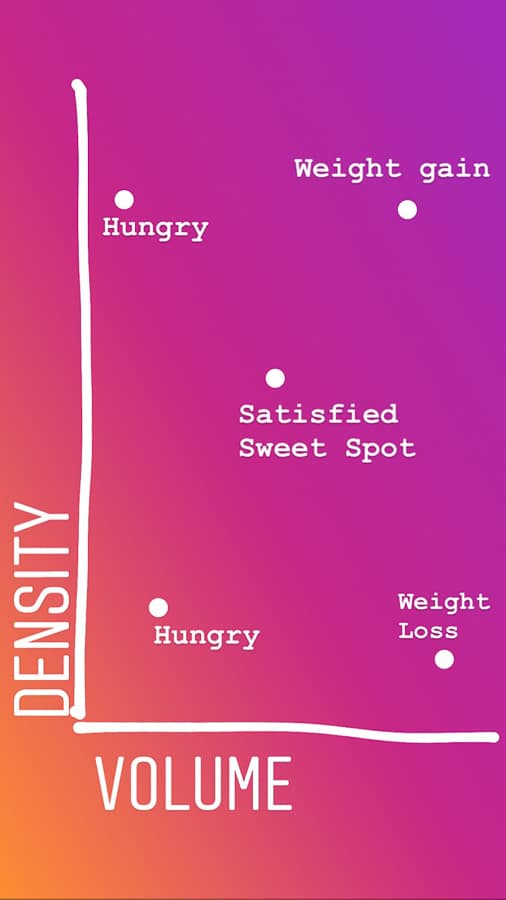
How To Gain Weight
I was talking with a friend about weight change the other day. We were actually discussing ways to gain weight. When you need to gain weight, you can add some extra snacks, but you can only eat so much volume. Your stomach can’t expand beyond a certain point, and you certainly don’t want to walk around uncomfortably stuffed all the time. So what do you do? You increase the energy (a.k.a. calorie) density of your foods. You eat more trail mix or nut butters or smoothies packed with foods higher in calories and lower in water. Rather than watermelon you want to eat dried fruit dehydrated of water but dense in nutrients and calories. Makes perfect sense right?
But what about weight loss?
If the weight gain plan seems so simple, why does the weight loss plan seem so much more complicated? Just like our stomachs can only get so big, they also can’t go empty. We can’t go from eating a usual volume of food to not eating at all. Walking around with a grumbling stomach would also be very uncomfortable and would devoid us of critical nutrients. Thus, instead of focusing on changing the volume of foods you eat, focus on changing the density. Choose foods (like watermelon) that DO have a lot of water and are less dense than those mentioned above. That doesn’t mean you can’t eat protein smoothies and peanut butter, obviously, but you do need to be more mindful of volume – or portion size – when you eat something dense.
Volumetrics
This isn’t a new concept. Barbara Rolls, PhD coined the concept of Volumetrics years ago. Her books teach you how to make choices based on energy and nutrient density. (Read a good overview here.) Volumetrics doesn’t mean eating pounds of celery or whole bags of fat-free popcorn, but it means choosing foods that are high in water and lower in fat (aka calorie density). When you make that swap, you can eat a similar volume and slowly, almost without noticing, lose weight.
There Are Many Factors That Lead To Satiety
- How hungry you were before the meal
- What you drink before and during your meal
- If you sat down at a table and ate mindfully or quickly ate your meal in a parking lot
- How your brain interpreted the sight, smell, texture, and flavor of the meal
The list goes on. The energy density of your meal is not the only factor that determines if you feel satisfied when it’s over. But if you look at the big picture, meals with high density and high volume consumed over and over will be more likely to lead to weight gain. And meals with lower density and high volume will be satisfying and more likely to lead to weight maintenance or loss.

The Balance Of Density and Volume Often Comes Naturally
Don’t overthink it. If you have a huge breakfast buffet, you’re probably going to reach for a lighter lunch without thinking about it. Seasonal eating is also a reflection of this – most of us crave water-based fresh produce in the summer and richer comfort foods in the winter. We make lots of choices all day long about what to eat. Should I have this or that? What am I craving? What sounds good? What needs eating? What is the quickest? Most of us have the freedom and privilege of choice on what to eat every time hunger calls. The sum of these little choices is what changes our weight up and down.
We are the product of the thousands of choices we make all day, every day.
What have you found in you own life experiments? How do you feel when you eat dense foods verses watery foods? Does anything surprise you?


Charmaine Ng | Architecture & Lifestyle Blog says
I definitely feel fuller when I eat watery foods like watermelon – but it also means I get hungrier sooner! I think a balanced diet, a little bit of this and that, is the best for weight loss. 🙂
Charmaine Ng | Architecture & Lifestyle Blog
http://charmainenyw.com
Brigid says
This is very interesting. I never really thought about the density of the food I was eating. But now I will make the adjustment.
Lara says
I had weight loss surgery a few years back that removed 80% of my stomach so I cannot eat as much as normal person so I live on nutrient dense foods. I do smaller smoothies with 2% yogurt and peanut butter, celery with cashew butter and raisins, scrambled egg on a piece of toast w/ heart healthy butter spread and meat and pasta salads like chicken sausage and gnocchi with a broccoli pesto. I am obviously not trying to gain weight but i eat 5-6x a day of these protein, fat , carb combos
KathEats says
Any change to the stomach does mean a dramatic change in density and volume. Your meals sound yummy and nutritious!
Polly says
Hi Kath, I think that the only way to lose weight is to be prepared to experience hunger. Regardless of the density or volume of the food that someone eats, you have to be in a calorie deficit to lose weight, and being in a calorie deficit means being hungry! And that’s ok. Hunger itself isn’t harmful. (Malnutrition, poverty and inability to obtain food are separate issues, of course.) but ultimately hunger is unpleasant but it’s a means to an end. What are your thoughts on just allowing oneself to be hungry?
KathEats says
That’s a good/interesting point. I think you’re right to an extent, but I also think it’s not always intentional hunger that you’re putting on yourself but that life is busy and you just don’t get around to eating all the time so you get hungry for meals. Hunger is the best sauce after all! I wouldn’t want someone to misinterpret though and stop eating and walk around hungry. That’s not healthy or good either.
Lara says
I respectfully disagree. There are other ways to be in a calorie deficit. Joyful movement and exercise.also what you eat and how consistent you are with feedings also makes a difference. For me, I lost more weight dancing, eating every 2-4 hours and always having a protein, fat, starch and fruit/vegetable at each meal (way more calories than i was eating while ‘dieting’) than I ever did with calorie restriction and over-exercising. Eating with a calorie deficit left me hungry, restricted and obsessive. I recommend going to a nutritionist/dietician to find out how many calories are appropriate and sustainable for your body, lifestyle, needs and satisfaction.
jenni says
I think it depends on the type of person you are. If you’re someone who struggles with portion size/binging, more volume might be better. If you’re someone who seems to be always hungry, more density is better. Just my 1 cent.
Theresa says
Same here. Doesn’t it feel life giving to be satisfied and not hungry?!
Michelle Andras says
I read a book called Always Hungry by a doctor who headed an obesity clinic that refutes this idea. If you are hungry you tend to crave sugar and carbs. Thousands of people have lost weight and gained health by following his advice, starting with two weeks of no sugar and no grains, eating lots of protein and healthy data so you feel full. I lost 27 lbs doing this and felt great the whole time.
Michelle Andras says
Healthy fat! Not data! Dang predictive typing.
Emma says
Kath, related to this, do you have a post on nursing and eating? I’m finding it hard to find filling food that aren’t PB, nuts, and dairy, which I eat but too much doesn’t sit well in my stomach. Would love more ideas!
KathEats says
Not specifically. I’ve just been intuitive eating but have found hunger to be satisfied pretty well just from normal 3 meals and snacks. What about other non dairy smoothie options or other fats like avocado?